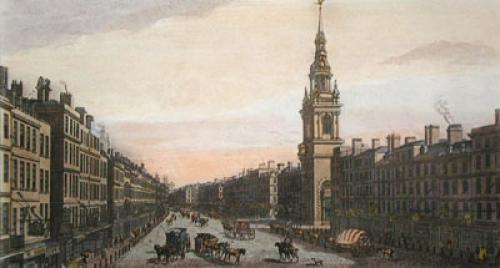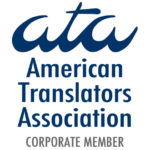What exactly is Cockney Rhyming Slang and where does it come from? Is it still used today? Was it developed for particular social or political reasons?
There are many worthy questions surrounding the use, creation and development of Cockney Rhyming Slang and there’s a lot of fun to be had too in the practice of this fun English language feature.
Where does the term Cockney Rhyming Slang come from and what is a Cockney?
The origin of Cockney Rhyming Slang is not completely clear. Many people attribute its development to the underground vernacular that was spoken by London thieves (in particular, those based in East London, Cockney being the term now used to loosely refer to Londoners with East London accents).
Cockneys were and – at the very core of it all – still are working class people from London. The term, Cockney, is derived from the word cockeneyes (a word which was developed in the 14th century) which means “eggs that are misshapen.”
The term is now used to refer to the majority of East-London born Brits, but when it first originated during the 17th century, it was more specifically used to refer to anyone born within the sound of Bow-bells, the bells found in the tower of St. Mary-le-Bow. The term is still used in a relatively derogatory way, but there are very few people who still use Cockney Rhyming Slang as a way of conversing on a daily basis.
The idea behind Cockney Rhyming Slang originating from London thieves comes from the idea that these professional tricksters wanted to develop a kind of language that authorities or spies listening into conversations would not be able to understand. However, as the language was never particularly widespread, no well-documented, it is difficult to be certain about this idea.
How does Cockney Rhyming Slang work?
The title of this post makes use of Cockney Rhyming Slang as an illustration of how the language feature is constructed. The word “Butcher’s” in the title actually forms part of a longer rhyme (commonly understood by all Cockneys) even when taken completely out of context and when removed from the original and longer rhyme, as it appears here in the title.
The full Cockney Rhyming Slang which includes the word “Butcher’s” is actually, “Butcher’s Hook” which rhymes with the English verb “to look” and therefore when a Cockney wants to take a “look” at something, he or she might say, “Let’s have a butcher’s” without necessarily having to complete the entire rhyming and adding the word “hook” on the end of the sentence.
In another example, picture yourself at home looking for something to take to work that you frantically cannot find. A Cockney might suggest “going up the apples” in order to look for the missing item. “Apples” comes from the Cockney Rhyming Slang, “apples and pears” and “pairs” rhymes with “stairs.” Therefore, when someone tells you to “go up the apples,” he or she is actually suggesting that you try going upstairs.
Examples of Cockney Rhyming Slang
Have fun incorporating some of these popular Cockney Rhyming Slang expressions into your daily conversations and find out whether you have any friends who happen to be Cockneys and who can follow what you’re saying without difficulty.
“Bacon and Eggs” – rhymes with “Legs” – “She has such long bacons.”
“Bees and Honey” – rhymes with “Money” – “Hand over the bees.”
“Crust of Bread” – rhymes with “Head” – “Use your crust, lad.”
“Rabbit and Pork” – rhymes with “Talk” – “I don’t know what she’s rabbiting about.”
“Scarpa Flow” – rhymes with “Go” – “Scarpa! The police are coming.”
“Trouble and Strife” – rhymes with “Wife” – “The trouble’s been shopping again.”
“Uncle Bert” – rhymes with “Shirt” – “I’m ironing my Uncle.”
Videos on Cockney Rhyming Slang
Take a “butcher’s” at these two interesting videos on Cockney Rhyming Slang taken from YouTube (one of which includes the loveable Stephen Fry) whenever you get the opportunity and use the chance to brush up on what you know.




